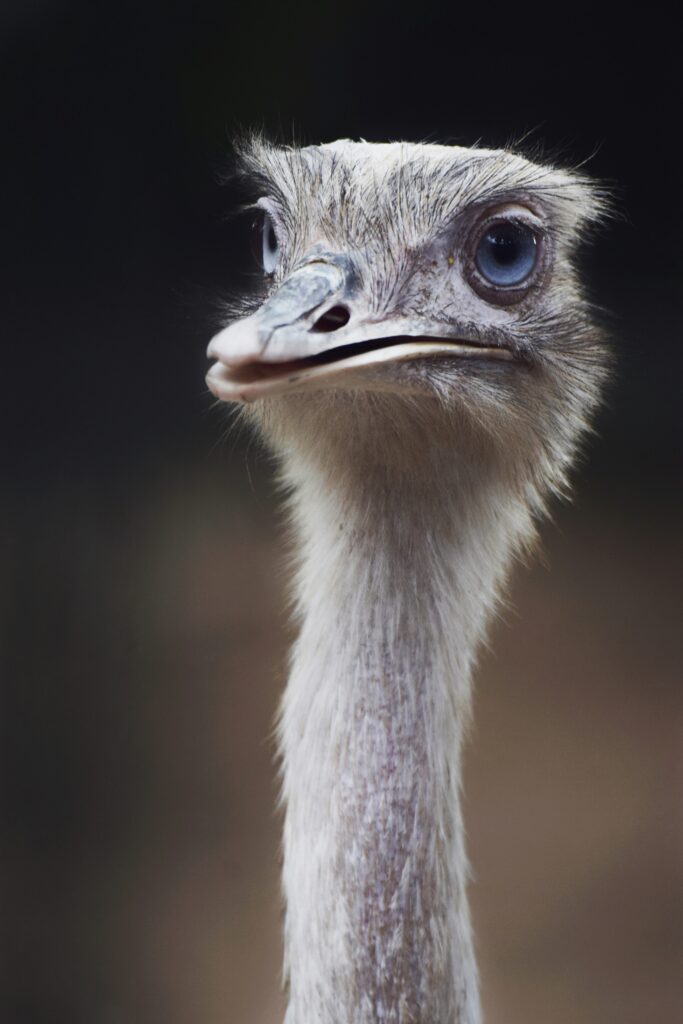Everyone may have heard at some stage the term “Bird brain” or ”Wise old owl;”, you may have even been called a bird brain or a wise old owl. So what is it about bird brains?
Hello Again,
Are birds wiser than we give them credit for, or are their brains just full of fluff (forgive the pun!)?
Once, being called a ‘bird brain’ was an insult. But now, it seems that this term might actually be a compliment. In general, birds have relatively large brains compared to their head size, and recent discoveries have revealed that birds possess a surprising 2 -4 times the number of neurons (those tiny cells in the brain that make us tick), in their fore-brains, compared to those found in mid-sized primates. This suggests the level of complexity in bird brains and behavior was previously underestimated.
Bird Brains
As with most things, though, there is variation. You might expect a big bird like an ostrich, to have a big brain. In fact, the eyeball of an ostrich (which is 5x bigger than the human eye) is bigger than their brain. These huge eyes, which help them to spot prey, don’t translate into a big brain power; Ostriches have been known to swallow golf balls ( I guess they see a big white ball that looks like an egg. But don’t compute that it has the nutritional value of a rock!).
Research shows that the Emperor penguin has the biggest bird brain, but the highest brain-to-body ratios are found among parrots, crows, magpies, jays, and ravens. These birds are known among ornithologists as ‘social play birds’ and social players, versus other types of players and non-players, showed significantly different average brain sizes. Non-players have the lowest average brain sizes, followed by solo players with slightly larger brains, object players, and then social players, who have by far the largest average brain size relative to body weight.
Who would have thunk it – right?
You are probably sitting back, saying, ” Who cares?” Well, there is a whole group of scientists who dedicate their lives to suggesting that play behaviour may be an important driver in the evolution of large brains in a number of species, including humans (and I think I have a boring life!).
Not so stupid
Birds are capable of a breathtaking range of behaviors. Alex, the famous African gray parrot, learned to count and accumulated a vocabulary of more than 100 words that he combined into phrases and questions (smarter than some teenagers these days!).
Ravens can solve complex puzzles and have figured out that dropping a specific key into a tube will earn them a tasty reward in lab experiments. Some birds can even use simple tools. Puffins have been filmed rather comically using sticks as back scratchers, and if you have ever seen any of the documentaries on the Galapagos islands, you will know about the finches that use twigs or cactus spines to extract insects from crevices. I had a zoology professor who delighted in telling me he studied ‘boobies’, and until I found out these were intelligent birds in the Galapagos, I was convinced he was some sort of pervert!
Brain economics
Smaller animals tend to have proportionally larger brains than larger animals. A mouse brain weighs less than 0.5 grams but is quite large compared to the mouse’s overall size. Scaled up to the size of an elephant, it would have an enormous 60-kilogram brain. That is about 14 times larger than the brain of an actual elephant, and yet elephants are considered to be much more intelligent than mice. Our brains are about seven times larger than would be expected for a mammal in our size range (50 to 100 kilograms).
Why are some birds so intelligent while others remain ‘simpleminded’, and what is with walking birds that have to bob their heads in unison with how fast their feet move?
Brains are metabolically costly. Birds are the only vertebrates that have expanded their brain size over the course of evolution. Large brains burn more energy than small brains, so in environments where the ability to escape predators quickly or to overpower rivals, is more important than figuring out how to count to three or solve a puzzle, intelligence becomes a liability.
So there you have it: birds keep their grey matter focused on what counts and pack more punch (neuron-wise). So next time you call someone a bird brain, you may actually be giving them a compliment.
Who would have thunk it!
Hope to see you back next time. Don’t miss out. Stay subscribed and add your thoughts or any comments you have (especially if you have something nice to say!) on the social media links (Linked In or Facebook).
Till next time.
Calvin
Sources:
https://www.americanscientist.org/article/bird-brain-evolution
https://www.sciencedaily.com/releases/2016/06/160613153411.htm
[Copyright The Compliance Concierge 2024]
Share this post: on Twitter on Facebook on Google+


